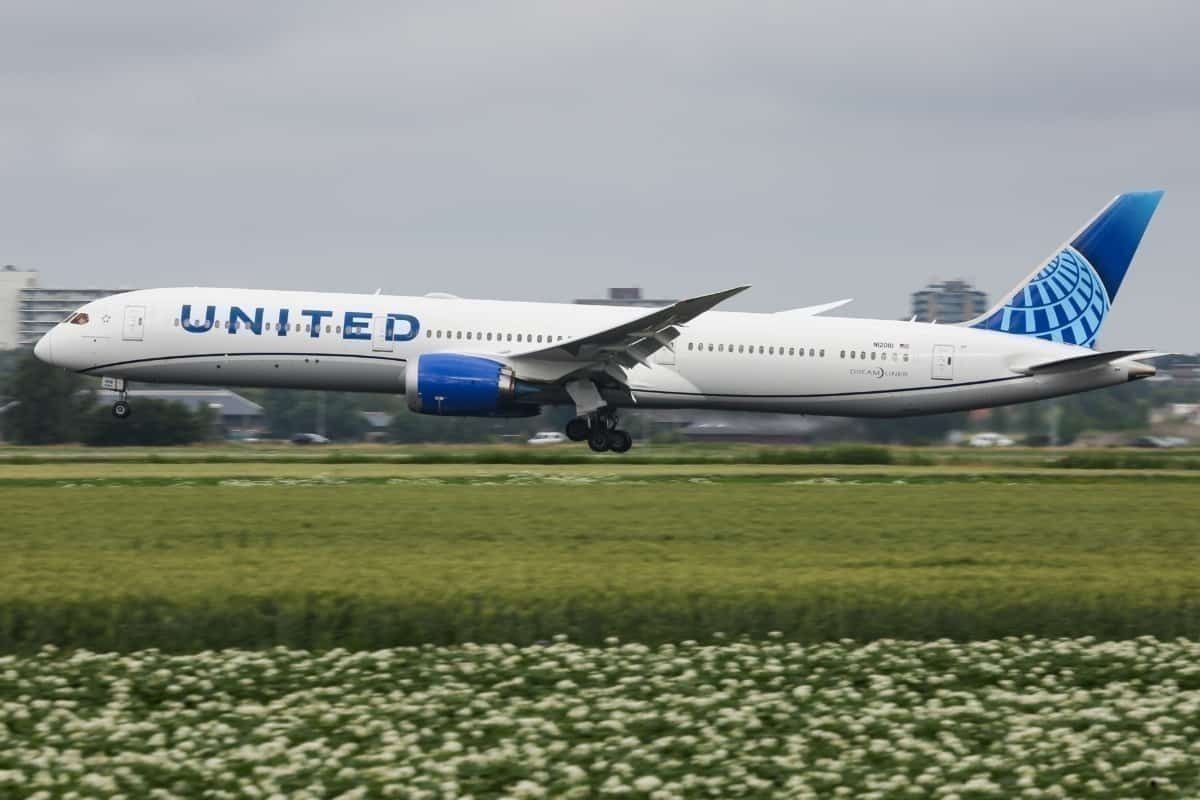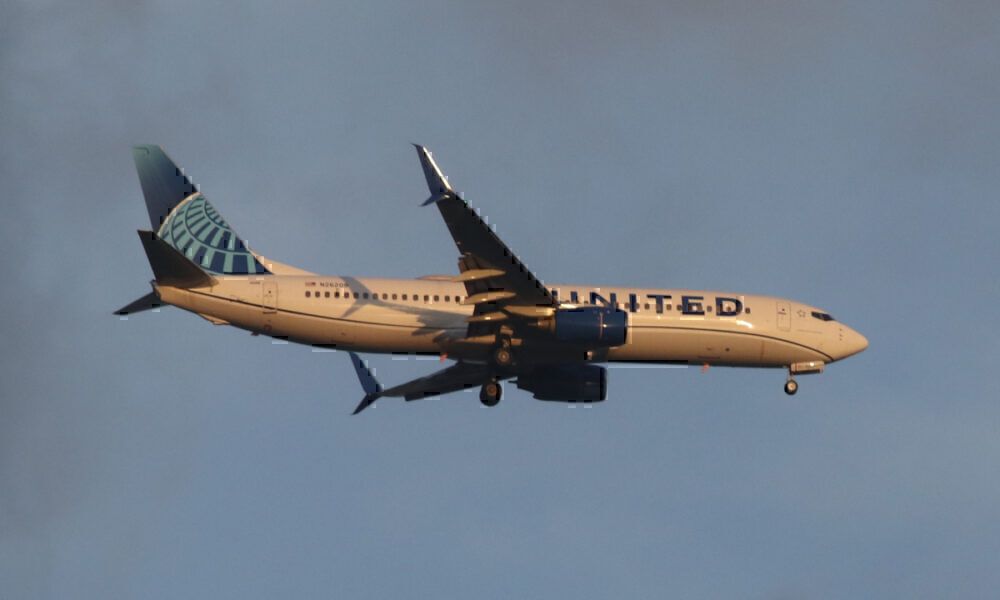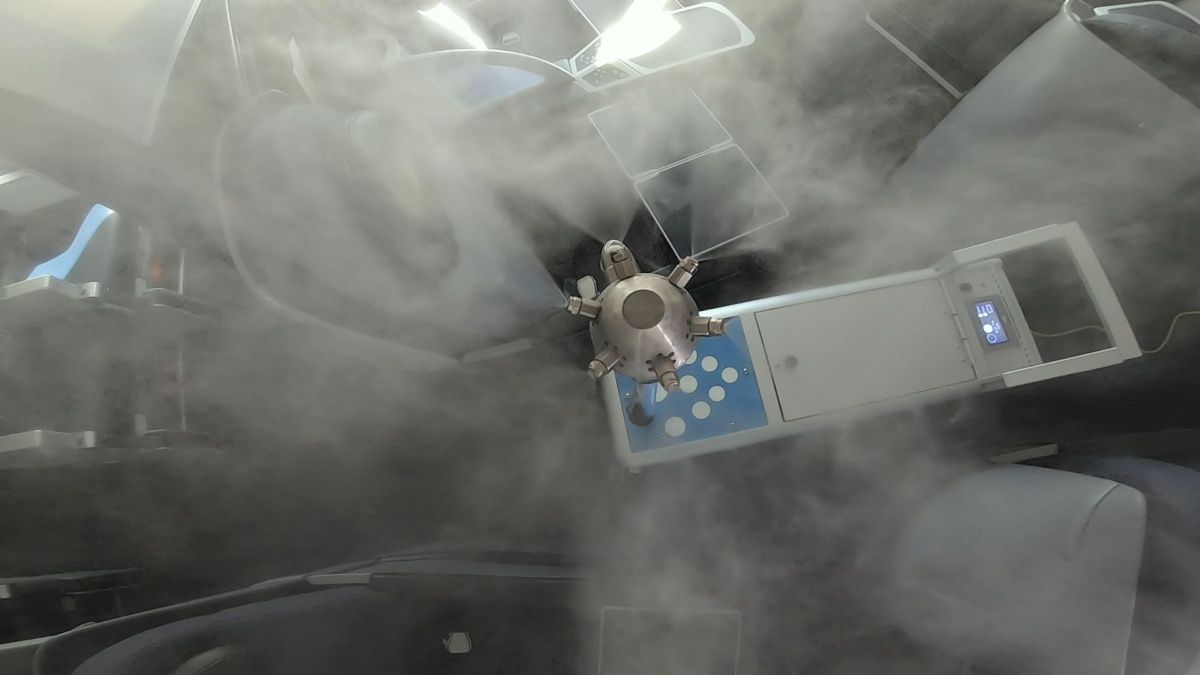United Airlines has recently announced plans to expand its current aircraft sanitization program. The airline will complement its existing measures with a new antimicrobial protectant spray, which will be applied to cabin surfaces by robots.
Logistics of the additional measures
United Airlines has this week announced that an antimicrobial spray will be added to its "already extensive cabin cleaning measures." This will complement the US legacy carrier's existing daily program of electrostatic spraying. The antimicrobial spray, known as Zoono Microbe Shield, is planned to be utilized weekly on both United's mainline and express fleets.
The protectant coating is EPA-registered and serves to create a lasting microbe repellent by bonding to cabin surfaces. Categorized by EPA as Category IV, the lowest level of toxicity, Zoono Microbe Shield will be applied to seats, tray tables, armrests, overhead bins, lavatories, and crew stations aboard United's aircraft.
At present, United applies the coating during deep cleaning to over 30 aircraft a week. The airline plans to add the measure to the entire mainline and express fleet "by the end of the year," according to the airline.
As far as where this occurs is concerned, United presently applies Zoono Microbe Shield to aircraft at Chicago O'Hare International Airport. United plans to expand these operations to its other six mainland hubs, as well as a further 200 US airports where its aircraft have overnight stays built into their schedules.
How the new measures work
In a YouTube video published on September 16th, the airline explains how Zoono Microbe Shield works, and also how it will be applied to cabin surfaces, namely through the use of 'NovaRover' robots.
These machines expel the protectant in the form of a fine mist at regular intervals, in a manner which coats every surface within 12 feet with the spray. In bonding with the surfaces it comes into contact with, Zoono Microbe Shield is then able to create "a protective layer that resembles microscopic pins once dry, which rupture cell walls and membranes when microbes come in contact with them," as per United's press release.
Nick Federico, MicroSonic's President, asserts that the use of this technology during deep cleaning will "deliver an additional effective layer of microbial protection." Toby Enqvist, United's Chief Customer Officer, sees antimicrobials as "an effective complement to our hospital-grade HEPA air filtration system, mandatory mask policy for customers and daily electrostatic spraying."
United will reapply the spray every week to refresh and fortify its protective layer, working in conjunction with the disinfectant that United electrostatically sprays in its cabins before most departures. In addition to the airline's seven US hubs (Chicago-O'Hare, Denver, Houston-Intercontinental, Los Angeles, Newark, San Francisco, and Washington-Dulles), United is also planning to deploy NovaRovers in Boston, Cleveland, and Las Vegas.
The new measures underline United's commitment to passenger safety, with which it will look to continue its mantra of "Connecting people. Uniting the world" despite the difficult present climate.



